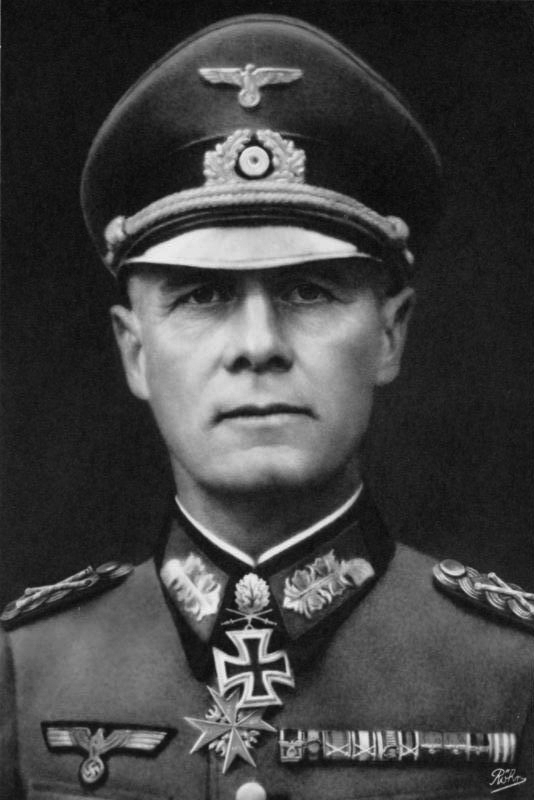‘We have a very daring and skillful opponent against us, and, may I say across the havoc of war, a great general.’
The words were Winston Churchill’s and the great general he was referring to was Erwin Rommel.
The Desert Fox
 Born 15 November 1891, Erwin Rommel was, as Churchill suggests, respected as a master tactician, the supreme strategist who, in 1940, helped defeat France and the Low Countries and then found lasting fame when sent by Hitler to North Africa where, commanding the Afrika Korps, he earned the sobriquet, the Desert Fox. Germany, his nation, adored him, his troops loved him, Hitler treasured him and his enemies respected him. His Afrika Korps was never charged with any war crimes and prisoners of war were treated humanely. When his only son, Manfred, proposed joining the Waffen SS, Rommel forbade it.
Born 15 November 1891, Erwin Rommel was, as Churchill suggests, respected as a master tactician, the supreme strategist who, in 1940, helped defeat France and the Low Countries and then found lasting fame when sent by Hitler to North Africa where, commanding the Afrika Korps, he earned the sobriquet, the Desert Fox. Germany, his nation, adored him, his troops loved him, Hitler treasured him and his enemies respected him. His Afrika Korps was never charged with any war crimes and prisoners of war were treated humanely. When his only son, Manfred, proposed joining the Waffen SS, Rommel forbade it.
In June 1944 Rommel was sent to Northern France to help coordinate the defence against the Allied Normandy Invasion but was wounded a month later when an RAF plane strafed his car. Rommel returned home to Germany to convalesce.
The July Bomb Plot
Meanwhile, on 20 July 1944, Hitler survived an assassination attempt in his Wolf’s Lair in East Prussia, the ‘July Bomb Plot’, perpetuated by Nazi officers who hoped to shorten the war with his removal. Hitler, although shaken, suffered only superficial injuries, and those responsible were soon rounded up and executed. Rommel, although not involved and actively against any plan to assassinate Hitler, did support the idea of having him removed from power. Once his association with the plotters, however tenuous, came to light, his downfall was inevitable and swift.
On 14 October 1944, Hitler dispatched two generals to Rommel’s home in Herrlingen to offer the fallen Field Marshal a bleak choice. Manfred, aged 15, was at home with his mother when the call came. He waited nervously as the three men talked in private, and then as his father went upstairs to speak to his mother. Finally, Rommel spoke to his son and told him of Hitler’s deal.
Manfred’s story
Writing after the war, Manfred described the scene as his father said, ‘”I have just had to tell your mother that I shall be dead in a quarter of an hour… The house is surrounded and Hitler is charging me with high treason. In view of my services in Africa, I am to have the chance of dying by poison. The two generals have brought it with them. It’s fatal in three seconds. If I accept, none of the usual steps will be taken against my family, that is against you.”
‘”Do you believe it?”‘ asked Manfred.
‘”Yes, I believe it. It is very much in their interest to see that the affair does not come out into the open. By the way, I have been charged to put you under a promise of the strictest silence. If a single word of this comes out, they will no longer feel themselves bound by the agreement.”‘
Manfred continues, ‘The car stood ready. The SS driver swung the door open and stood to attention. My father pushed his Marshal’s baton under his left arm, and with his face calm, gave Aldinger (Rommel’s aide) and me his hand once more before getting in the car… My father did not turn again as the car drove quickly off up the hill and disappeared around a bend in the road. When it had gone Aldinger and I turned and walked silently back into the house.
‘Twenty minutes later the telephone rang. Aldinger lifted the receiver and my father’s death was duly reported.’
A loyal German soldier
Having died from ‘the injuries sustained during the RAF attack in France’, Erwin Rommel was, as promised, buried with full military honours, accorded an official day of mourning, and his family pensioned off.

Writing after the war, Churchill wrote that Rommel was deserving of ‘our respect, because, although a loyal German soldier, he came to hate Hitler and all his works, and took part in the conspiracy to rescue Germany by displacing the maniac and tyrant. For this, he paid the forfeit of his life.’
Pictured is Rommel’s memorial at the place of his suicide at Herrlingen in southern Germany, but, since 1968, known as Blaustein. Manfred died in November 2013, aged 84.
 Rupert Colley.
Rupert Colley.
Read more about the war in The Clever Teens Guide to World War Two available as an ebook and 80-page paperback from Amazon, Barnes & Noble, Waterstone’s, Apple Books and other stores.
Was the plot perpetrated by “Nazi” officers?
Came from the very top.
Ditto Dietrich Bonhoeffer (although he’d got himself into trouble as early as February 2 1933; one of the few who realised what was what from the start.
I had heard this before. Interesting to me as my dad was under Monty, and they did respect the Desert Fox. Thus I was disappointed to hear he participated in the Holocaust, sending Jews from N Africa (Alexandria, maybe?) to the camps. I’d be interested to see your opinion on this.
The Rommel backlash is underway: http://www.independent.co.uk/news/world/europe/was-the-desert-fox-an-honest-soldier-or-just-another-nazi-6272076.html
More, or less, substance than Pius XII?